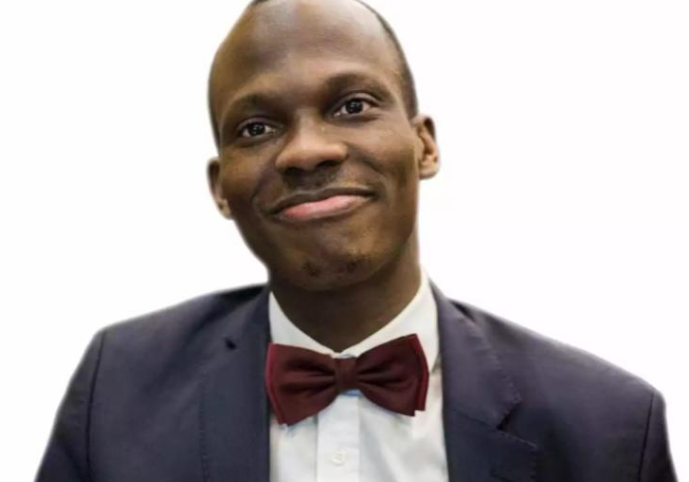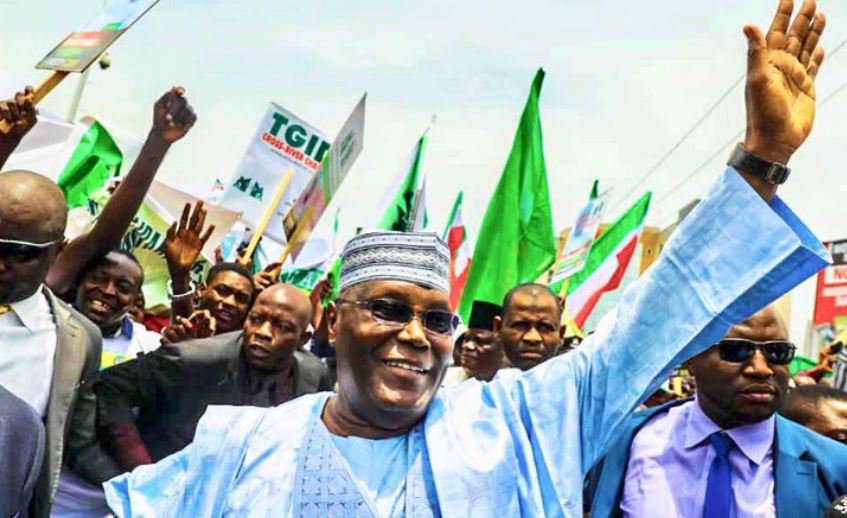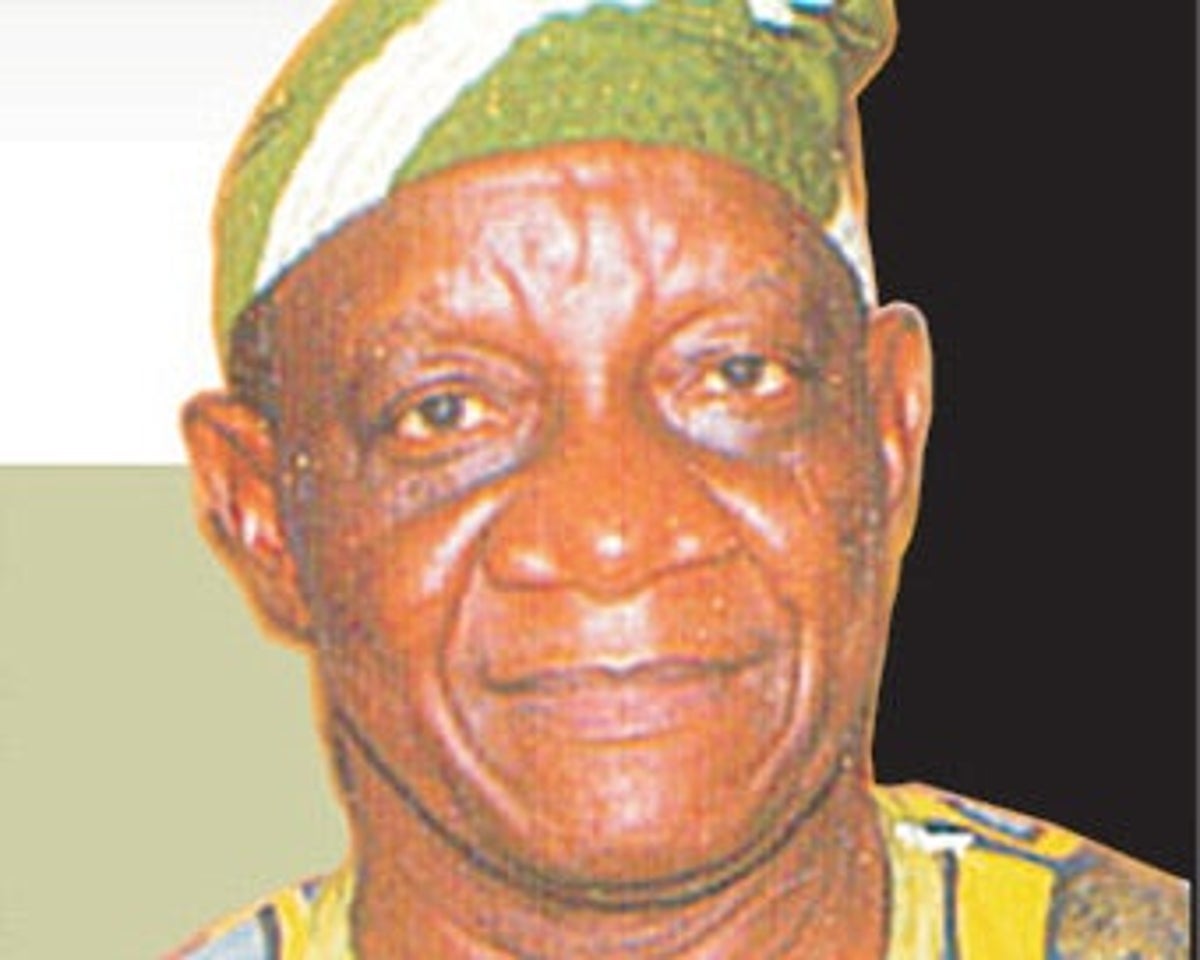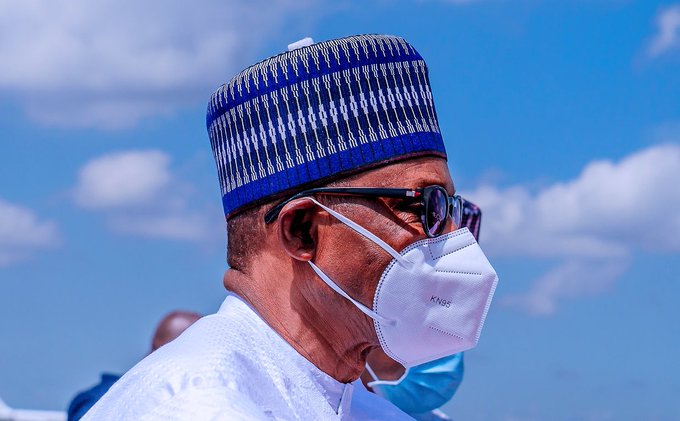- Eagles fly Alone and at High Altitudes
They don’t fly with sparrows, ravens, and other small birds.
MEANING: Stay away from narrow-minded people, those that bring you down. Eagle flies with Eagles. Keep good company.
- Eagles have an Accurate Vision
They have the ability to focus on something as far as 3 kilometers away. Eagle’s eyesight is around 5 times better than the human’s vision. No matter the obstacles, the eagle will not move his focus from the prey until he grabs it.
MEANING: Have a vision and remain focused no matter what the obstacles and you will succeed.
- Eagles do not Eat Dead things. They Feed only on Fresh Prey
MEANING: Do not rely on your past success; keep looking for new frontiers to conquer. Leave your past where it belongs, in the past.
- Eagles Love the Storm.
When clouds gather, the eagle gets excited; the eagle uses the storms wind to lift itself higher. Once it finds the wind of the storm, the eagle uses the raging storm to lift itself above the clouds. This gives the eagle an opportunity to glide and rest its wings. In the meantime, all the other birds hide in the branches and leaves of the tree.
MEANING: Face your challenges head on knowing that these will make you emerge stronger and better than you were. We can use the storms of life to rise to greater heights. Achievers are not afraid to rise to greater heights. Achievers are not afraid of challenges; rather they relish them and use them profitably.
- Eagles Prepare for Training
They remove the feathers and soft grass in the nest so that the young ones get uncomfortable in preparation for flying and eventually flies/ when it becomes unbearable to stay in the nest.
MEANING: Leave your Comfort Zone, there is No Growth there.
- When the Eagle Grows Old
His feathers becomes weak and cannot take him as fast and as high as it should. This makes him weak and could make him die. So he retires to a place far away in the mountains. While there, he plucks out the weak feathers on his body and breaks its beaks and claws against the rocks until he is completely bare; a very bloody and painful process. Then he stays in this hiding place until he has grown new feathers, new beaks and claws and then he comes out flying higher than before.
MEANING: We occasionally need to shed off old habit no matter how difficult, things that burden us or add no value to our lives should be let go of.
Like all birds of prey, eagles have very large hooked beaks for ripping flesh from their prey, strong, muscular legs, and powerful talons. The beak is typically heavier than that of most other birds of prey. Eagles’ eyes are extremely powerful.
In fact, the harpy eagle is considered one of the strongest birds in the world. Their strength comes mainly from their powerful talons and massive wings. An eagle has around 10 times more gripping power in its large talons than a human hand.
How long can Eagle live?
The Bald eagle lives for 20 years while the Crowned eagle lives up to 14 years and there was a particular Eagle recorded to have lived for 38 years in Mexico.
How fast can Eagle fly?
Golden eagle: 320 km/h. Bald eagle: 120 – 160 km/h. Red-tailed hawk: 190 km/h
5 Positive Leadership Traits People Can Learn From Eagles
For centuries, these seemingly larger-than-life birds have fascinated and inspired us with their brilliant leadership characteristics. When eagles come to mind, people commonly imagine an enormous hunter soaring above wide-open spaces on outsized wings.
Indeed, eagles are among the world’s largest birds of prey. We venerate them as living symbols of power, freedom, and transcendence. In some religions, these creatures are believed to touch the face of God. Legend holds that Mexico’s Aztec civilizations so revered the birds that they built Tenochtitlan, their capital, at the spot where an eagle perched on a cactus.
For centuries, people have seen eagles as a symbol of beauty, bravery, courage, honour, pride, determination, and grace. This bird is important and symbolic to humanity because of its characteristics. Here are five important characteristics of the eagle that have been closely associated with leadership.
Leadership Qualities of Eagles
- Eagles have powerful vision.
- Eagles are fearless.
- Eagles are tenacious.
- Eagles are high flyers.
- Eagles nurture their young.
- Eagles Have Powerful Vision
If you ever see an eagle sitting high above on a cliff or atop a tree, watch closely and see how attentive the bird is. The body will be still and the head tilted side to side to observe what is happening below, around, and above it. Even if it’s flying, you can observe how keen its eyes are, looking for its prey.
The Scientific Facts
Eagles have extremely powerful vision.
The eyes of an eagle are specially designed for long-distance focus with clarity.
The eagle’s eye is one of the strongest in the entire animal kingdom (four to eight times stronger than that of the average human).
An eagle is able to spot a rabbit 3.2 km away.
An eagle’s eyes are roughly the same size as those of a human. In fact, as an eagle descends to attack its prey, the muscles in its eyes continuously adjust the curvature of the eyeballs in order to maintain sharp focus throughout the approach and attack.
Their eyes are stated to be larger in size than their brain (by weight).
The most noteworthy features of eagles’ eyes are color vision, high resolution, and clarity.
How These Traits Bring You Success in Your Career
Even if it’s flying, you can observe how keen its eyes are, looking for its prey. The eagle teaches us to remain patient, but ever-present, always keeping our eyes to the future, while not forgetting to take note of our present surroundings. When opportunity strikes, you’ll need to be the first one to see it and you’ll need to move fast. Have a profound vision for your future and constantly remind yourself to stay focused.
How These Characteristics Make You a Better Leader
Does this leadership characteristic ring a bell for you? I am sure it does. Look at great leaders who have come and gone in the world and you’ll see that they share the characteristic of eagle-like vision, with the ability to both see reality clearly as it is in the present, as well as make accurate predictions about the future.
You must have a vision that guides and leads your team towards the organization’s or society’s goals. The vision must be big, as well as focused. A big, focused vision will produce big results.
Example of a Great Leader with this quality
Abraham Lincoln: Take Abraham Lincoln for example. Abraham Lincoln, the 16th president of the United States, guided his country through the most devastating experience in its national history, the Civil War. He had a vision to save the Union and free the slaves. He is considered by many historians to have been the greatest American president.
You cannot escape the responsibility of tomorrow by evading it today. — Abraham Lincoln
- Eagles Are Fearless Hunters
An eagle will never surrender to its prey, no matter its strength or size. It will always put up a fight to win its prey or regain its territory. Golden Eagles are such remarkable hunters that they can prey on goats much larger than themselves by throwing them off the side of a cliff. We can learn a lot from the eagle’s determination.
The Scientific Facts
The talons, or claws on an eagle’s toes are curved and razor-sharp for catching and holding their prey.
These large toes gave eagles the name raptor, which comes from a Latin word “rapere” meaning to grip or grasp.
The rough bumps on the eagle’s toes help them hold slippery, wiggling prey, like fish.
The long talons can inflict serious wounds to intruders.
Their diet consists mainly of fish, but waterfowl, and small mammals.
How These Traits Bring You Success in Your Career
Just as eagles must risk themselves for the survival of their families, you must not be afraid to put yourself on the line. Someone who’s willing to take risks, while staying loyal and determined, will get noticed and plucked out of the crowd.
How These Characteristics Make You a Better Leader
Successful leaders are fearless. They face problems head on. No matter what the size of the problem, a good leader attacks them without regard for themselves. It wouldn’t even dawn on you to be afraid because your instinct is to protect that which you love and cherish. Other take note of your passion and determination and draw strength from it.
Example of a Great Leader with this quality
Nelson Mandela: Mandela was arrested and imprisoned in 1962. Subsequently, he was sentenced to life imprisonment for conspiring to overthrow the state of South Africa. Mandela served 27 years in prison (split between Robben Island, Pollsmoor Prison, and Victor Verster Prison). After all of his challenges, he still advocated for forgiveness and equality, never backing down from a challenge.
I learned that courage was not the absence of fear, but the triumph over it. The brave man is not he who does not feel afraid, but he who conquers that fear. — Nelson Mandela
- Eagles Are Tenacious Defenders
Watch an eagle when a storm comes. While other birds fly away from the storm, an eagle spreads its mighty wings and uses the current to soar to greater heights. The eagle takes advantage of the very storm that lesser birds fear.
The Scientific Facts
Bald eagles use their long, sharp claws to defend themselves. Bald eagles do not have any animal predators.
Osprey, a large bird, may try to attack them, but the eagle will scare them away.
Eagles build their nests high up and are vigilant protectors of their eggs and young.
It is thought that bald eagles mate for life. However, if one member of a pair dies or disappears, the survivor will choose a new mate.
They invest heavily in their relationships.
They share the burden of building and maintaining a home and the trials of parenthood.
Eagle courtship involves elaborate, spectacular calls and flight displays.
Usually, a territory defended by a mature pair will be 1 to 2 km (0.62 to 1.24 mi) of waterside habitat.
How These Traits Bring You Success in Your Career
The challenges in the life of a leader are many. These are the storms we must face as leaders to rise to greater heights. When eagles build relationships, they truly invest in them.
How These Traits Make You a Better Leader
Like an eagle, a leader can only rise to greater heights if he faces the challenges head on, without running away from them.
Example of a Great Leader with this quality
Cesar Chavez: Cesar Chavez made people aware of the struggles of farm workers for better pay and safer working conditions. Chavez succeeded to bring higher pay and better hours to farm workers through nonviolent tactics (boycotts, pickets, and strikes). Cesar Chavez never gave up and defended his people fiercely.
Preservation of one’s own culture does not require contempt or disrespect for other cultures. — Cesar Chavez
- Eagles Are High Flyers
Great leaders are problem solvers. They don’t complain like the chickens do. When the storm comes, they love to take challenges as the eagle does.
The Scientific Facts
In reality, eagles tend to use very little energy when they fly so high.
Even though they can reach altitudes of over 10,000 feet, they are usually soaring to these heights, and taking long glides to cover ground, then soaring up again and repeating the process.
Their large wingspan allows them to glide and use very little energy.
How These Traits Bring You Success in Your Career
An eagle doesn’t mingle with the pigeons. Pigeons scavenge on the ground and grumble and complain all day long. Eagles don’t. They fly and make less noise, waiting for opportunities to strike their next prey or gliding with the current of the storm. Remaining focused on that which inspires you will help guide you through your career. It’s easier to stay motivated when you stay focused on what truly inspires you.
How These Traits Make You a Better Leader
Great leaders are problem solvers. They don’t complain like pigeons do. They love to take challenges like an eagle when the storm comes.
Eagles can fly up to an altitude of 10,000 feet, but they are able to swiftly land on the ground. At 10,000 feet, you will never find another bird. You must have high hopes and work to inspire others to greater heights. Think big and ask others to think big as well. When eagles fly, they make less noise than other birds. They wait patiently for opportunities to strike. We can learn a lot from the eagle’s power and patience.
Example of a Great Leader with this quality
Warren Buffett: Buffett was born in Nebraska in 1930. He demonstrated keen business abilities at a young age. He formed Buffett Partnership Ltd. in 1956, and by 1965 he had assumed control of Berkshire Hathaway. He oversaw the growth of a conglomerate with holdings in the media, insurance, energy and food, and beverage industries. Buffett is one of the world’s richest men and a celebrated philanthropist. We can learn a lot from Buffett’s savvy investing and his constant vigilance.
I always knew I was going to be rich. I don’t think I ever doubted it for a minute. — Warren Buffett
- Eagles Nurture Their Young
Even though eagles are known for their aggression, what is more astonishing is their ability to nurture their young ones.
The Scientific Facts
Eaglets are nestlings for 10 to 12 weeks (by the time they are 9 weeks old, they are fully grown).
Once the babies hatch, the female is present at the nest about 90% of the time. The male is present about 50% of the time. At least one of the parents is at the nest almost all of the time.
Starting at day one, the young nestlings are directly fed raw meat (eagles do not regurgitate food to feed their young like some other animals do).
During the first two weeks of the babies’ lives, the male provides most of the food. After three or four weeks, the female provides as much food as the male, and by the late nesting period, the female provides most of the food.
Eaglets are fed one to eight times a day. Their parents carry prey to the nest. They feed their chicks by tearing off pieces of food and holding them out to the beaks of the eaglets. The parents tear off bits of flesh and feed them directly, bill to bill.
By age five weeks, male and female parents bring nearly equal amounts of food to their chicks. Parents begin spending more time away from the young and often perch in nearby trees.
By six weeks old, the young are able to stand and walk. By seven weeks old, their maximum body growth is nearing completion.
At eight weeks, they are at their hungriest and are ready to fly by week twelve.
At nine weeks old, the chicks are fully grown. Chicks continue living in the nest and gaining strength for 10 to 12 weeks.
How These Traits Bring You Success in Your Career
As is the case with other birds, mother eagles must take good care of their young to give them the strength to fly. Just as mother eagles must usher their chicks out of the nest, a good leader must invest their time in their coworkers, etc. If you invest your time in other, then they’ll invest their time in you. Building strong and stable relationships is one of the best ways to grow your career.
How These Traits Make You a Better Leader
True leaders are not bosses. They grow with their people. They strive to make individuals in the organization or society grows to their full ability. They teach and guide just like the mother eagle does. They never stop giving challenges, but they also never give up empowering and directing.
Example of a Great Leader with this quality
John F. Kennedy: To John F. Kennedy, America was something to take care of together as a team. Kennedy asked his fellow Americans to join him in the collective dream of going to the moon “not because it is easy, but because it is hard.” Kennedy believed that by investing in the dreams and hopes of his fellow countrymen, the country would rise above its troubles.
“If art is to nourish the roots of our culture, society must set the artist free to follow his vision wherever it takes him” — John F. Kenney
Eagles in Mythology and Culture:
Native American cultures: In ancient North American cultures, Eagles were more prominent in reality and in symbology than in Eurasia. The eagle is still considered a sacred bird in many Indigenous American cultures. Their feathers are central to a number of religious and spiritual ceremonies. While most prominent among the Plains cultures, eagles are also held sacred in a number of other Native Americans in the United States and First Nations Peoples in Canada.
Judaism and Christianity: Eagles are mentioned in the Bible as being admired for their swiftness, great physical power, and their endurance. Eagles are one of four dimensions of creation, as a messenger of God, and a skilled predator.
Eurasian cultures: Many Eurasian cultures and faiths feature eagles prominently. In the Hellenistic religion, the golden eagle is the signature bird of the god Zeus.
Norse mythology: In Norse mythology, the golden eagle sits atop Yggdrasil, the great ash tree that runs through the universe. A squirrel, Ratsatosk, carries messages and insults between the eagle at the crown and a serpent gnawing at the tree roots. In many cultures, eagles were viewed as a link between terrestrial mankind and celestial deities.
Arabic mythologies: In the Arab world the eagle is historically a symbol of power in poetry. According to legend, the eagle was the personal emblem of Saladin.
Chinese culture: In these cultures, the eagle is a symbol for wisdom. The eagle is also a symbol of strength. For the Huns, who travelled through central Asia, the eagle symbolised the ruler.
Facts About Eagles
Eagles belong to the family Accipitridae.
Eagles belong to the order Falconiformes.
Sometimes even the national bird has to cut loose. Bald Eagles have been known to play with plastic bottles and other objects pressed into service as toys.
The largest Bald Eagle nest on record, in St. Petersburg, Florida, was 2.9 meters in diameter and 6.1 meters tall.
Another famous nest—in Vermilion, Ohio—was shaped like a wine glass and weighed almost two metric tons. It was used for 34 years until the tree blew down.
Immature Bald Eagles spend the first four years of their lives in nomadic exploration of vast territories and can fly hundreds of miles per day.
Some young birds from Florida have wandered north as far as Michigan, and birds from California have reached Alaska.
Bald Eagles occasionally hunt cooperatively, with one individual flushing prey towards another.
The oldest recorded eagle in the wild was at least 38 years old.
Book Recommendation: The 7 Habits of Highly Effective People by Dr. Stephan R. Covey. It’s a great book if you not only read it but implement its practices as well.
THE EAGLE IS THE “KING OF THE SKY” – SO, BE LIKE THE EAGLE
NEVER GIVE UP!
BE AN EAGLE!
Godwin Etakibuebu; a veteran Journalist, wrote from Lagos.
Contact:
Website: www.godwintheguru.com






